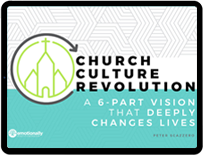Family Devotions: A Hard Lesson Learned
Every stage of our life offers us new opportunities to mature- especially in our leadership. One of the most difficult areas to do this, of course, is with our own families. Last month, two of our four daughters set out for an extended time away – one to Spain with her husband for one year, and a second to Australia to work/travel for 1-2 years with her friends. Over the years I have wrestled with the question: How do I respect their independence/separateness (especially in their journey with Christ), while at the same time, keep Jesus as a core value in our family? There is no one “right way” to do devotional time with our children –regardless of their age. So I do have my share of stories about failed “devotional times” with our children at many stages in our family history. But in this case at least, three things bore great fruit. I. Read more.





